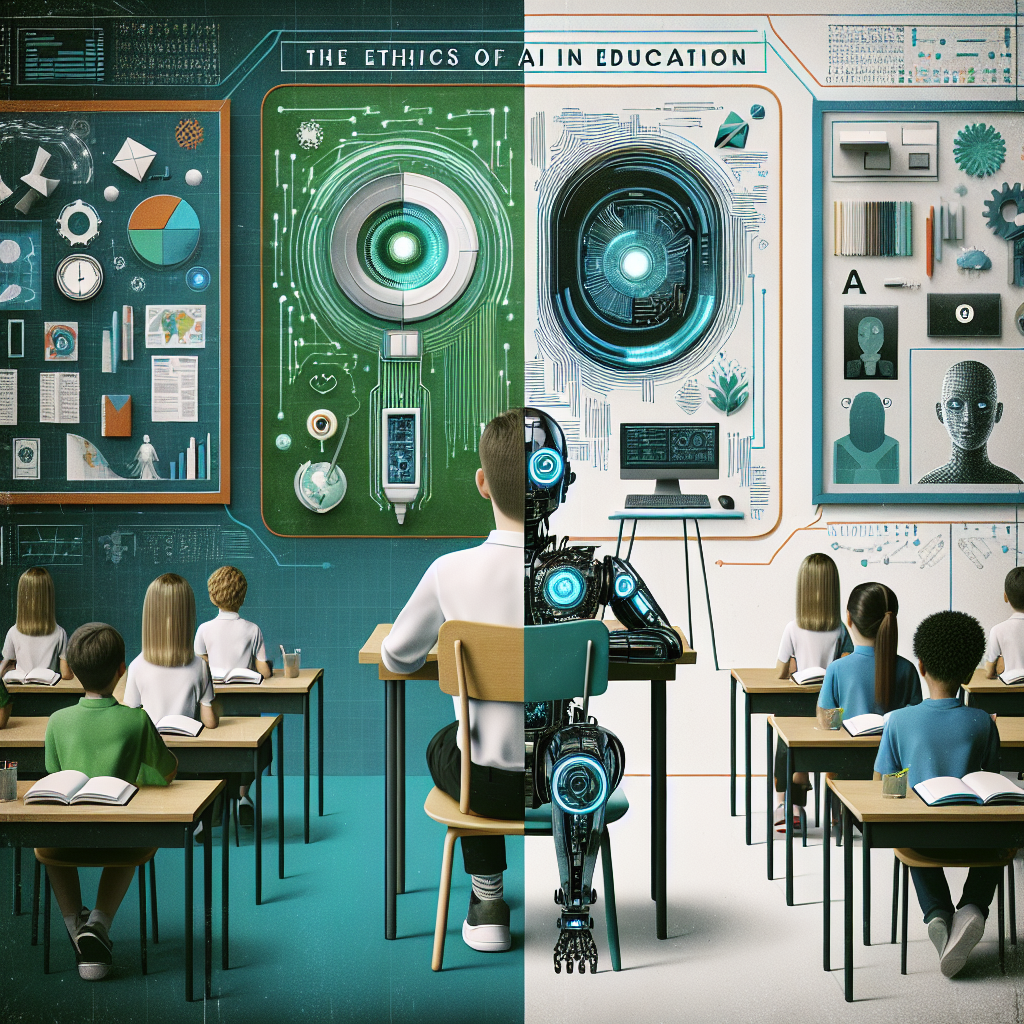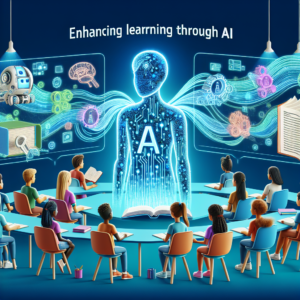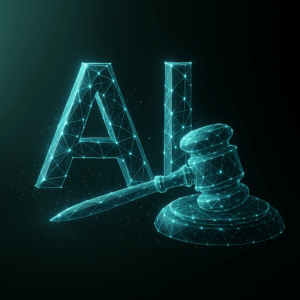
Artificial intelligence (AI) is transforming education at a rapid pace, offering personalized learning experiences, real-time tutoring, and automated grading. While these innovations promise a brighter future for learners, they also bring significant ethical challenges. At the heart of the debate lies a critical question: Does AI enhance learning outcomes, or does it risk reducing student autonomy? In this article, we delve into the ethical dimensions of AI in education, exploring its potential, pitfalls, and the path toward responsible implementation.
The Rise of AI in Education
Over the past decade, AI technologies have seamlessly integrated into educational systems worldwide. From elementary classrooms to advanced university courses, AI tools have been embraced to make teaching and learning more efficient. Current applications include:
- Personalized learning platforms that adapt to individual learning styles and paces.
- AI-powered tutors offering instant feedback and guidance.
- Automated grading systems that reduce educators’ administrative burdens.
These tools aim to address challenges such as overcrowded classrooms and limited access to quality education. For instance, platforms like Khan Academy employ AI to suggest tailored learning materials, while tools like DreamBox adjust lesson difficulty in real time to suit each student’s progress.
Yet, as promising as these technologies are, they also raise ethical concerns. How much of the student’s learning journey remains self-directed? Does AI prioritize efficiency over deeper, autonomous engagement with material? These questions underscore the importance of balancing innovation with ethical considerations.
Enhancing Learning through AI
Personalized Learning: A Tailored Approach
One of AI’s greatest contributions to education lies in its ability to create personalized learning experiences. By analyzing vast amounts of data, AI can identify a student’s strengths, weaknesses, and preferences, offering customized recommendations to enhance understanding.
For example, adaptive platforms like Coursera and Edmentum provide individualized course recommendations based on a student’s progress and engagement. This approach ensures that learners neither feel overwhelmed nor under-challenged, helping them reach their full potential.
However, this tailored experience raises questions about autonomy. By constantly guiding students toward specific paths, are these systems inadvertently limiting their ability to explore diverse interests? While AI can assist in narrowing gaps in knowledge, it must not confine learners to algorithm-defined boundaries.
AI Tutors: Learning Without Limits
AI tutors have emerged as powerful tools for on-demand assistance. These systems simulate human interactions, offering explanations, answering questions, and guiding students through complex topics. For example:
- Duolingo employs AI to provide language learners with conversational practice and personalized lesson plans.
- AI-driven chatbots are being integrated into university systems to assist students with queries ranging from academic advice to coursework support.
While the convenience of AI tutors is undeniable, over-reliance on them might erode critical thinking and problem-solving skills. Human instructors play a crucial role in fostering creativity and intellectual independence—qualities that AI systems currently cannot replicate.
Automated Grading: Efficiency Meets Fairness
AI-powered grading systems are revolutionizing assessment processes by providing faster and more consistent evaluations. Tools like Gradescope analyze essays for grammar, structure, and even originality, allowing educators to focus on teaching rather than administrative tasks.
However, such systems are not without flaws. Bias in AI algorithms can lead to inequitable assessments, particularly when evaluating creative or unconventional work. Moreover, the over-standardization of grading criteria risks undervaluing diverse perspectives and approaches to learning.
Ethical Concerns in AI Education
Data Privacy: Protecting Student Information
AI systems rely heavily on data to function effectively, collecting information about students’ learning behaviors, preferences, and demographics. This data collection raises significant privacy concerns, including:
- Security Risks: Student data, if not adequately protected, is vulnerable to breaches or misuse.
- Consent Issues: Are students and parents fully informed about how their data is collected and used? Transparency is essential to building trust.
To address these concerns, educational institutions must implement stringent data protection measures. Adhering to regulations like the General Data Protection Regulation (GDPR) ensures that sensitive information remains secure and is used ethically.
Algorithmic Bias: Perpetuating Inequities
AI systems are trained on data that reflects the biases and limitations of the real world. When these biases are embedded into algorithms, they can disproportionately affect students from marginalized backgrounds. For example:
- Language-learning AI may struggle with regional dialects, disadvantaging non-native speakers.
- Predictive analytics tools might unfairly label students as underperformers based on incomplete or skewed data.
Combatting bias requires rigorous testing of AI systems and the inclusion of diverse datasets to ensure fair and equitable outcomes for all learners.
Teacher-Student Dynamics: Collaboration vs. Replacement
The integration of AI raises questions about its impact on the teacher-student relationship. While AI can assist with instructional tasks, it cannot replace the empathy, intuition, and mentorship that human educators provide. Striking a balance between AI support and teacher involvement is crucial to maintaining the human element in education.
Reducing Autonomy with AI
While AI offers numerous benefits, it also poses risks to student autonomy and independence.
Over-Reliance on AI Tools
The convenience of AI can lead students to over-rely on these systems for answers and guidance, potentially undermining their problem-solving abilities. For instance:
- Predictive text tools may discourage students from developing their writing skills.
- Automated study aids might replace traditional methods of research and critical inquiry.
Educators must emphasize that AI tools are supplementary resources rather than replacements for independent learning.
Surveillance and Monitoring
AI-powered monitoring tools, such as those used for online exams or attendance tracking, raise ethical concerns about student privacy. While these systems aim to improve accountability, they may:
- Create a sense of constant surveillance, stifling creativity and free expression.
- Exacerbate stress and anxiety among students.
Developing clear policies on AI monitoring and ensuring its ethical use can mitigate these concerns.
Erosion of Critical Thinking Skills
AI’s ability to provide instant solutions can inadvertently discourage students from engaging deeply with material. Over time, this lack of engagement may result in a superficial understanding of subjects, undermining the development of critical thinking skills.
Balancing AI Integration in Education
To address these challenges, institutions must adopt ethical frameworks that prioritize student well-being and autonomy.
Guidelines for Ethical AI Use
- Transparency: Educators and developers should clearly communicate how AI systems work and their limitations.
- Inclusivity: AI tools must be designed to accommodate diverse learning needs and backgrounds.
- Human Oversight: Teachers should play an active role in guiding students, ensuring that AI complements rather than replaces traditional teaching methods.
Promoting Human-AI Collaboration
By combining human insight with AI capabilities, education can achieve a balanced approach. For example, teachers can use AI tools to identify areas where students struggle, enabling targeted interventions while maintaining the personal connection that fosters trust and motivation.
Case Studies: Lessons from Real-World Applications
China’s Smart Classrooms
In China, AI-driven facial recognition systems are used to monitor student engagement. While proponents argue that these tools improve focus and accountability, critics warn of privacy violations and the risk of fostering a surveillance culture.
USA’s Knewton Platform
Knewton’s adaptive learning platform garnered praise for its ability to personalize education. However, it faced criticism for overpromising its capabilities, highlighting the need for realistic expectations in AI applications.
India’s Byju’s App
Byju’s, an AI-based learning app, has become a household name in India. While it has democratized access to quality education, concerns have been raised about its emphasis on commercial gains over educational outcomes.
Future Prospects: Can AI Be Ethical in Education?
As AI continues to evolve, its role in education will likely expand. Ensuring ethical implementation requires:
- Global Standards: Developing universal guidelines to govern AI use in education.
- Collaborative Research: Engaging educators, technologists, and ethicists to refine AI tools and address ethical concerns.
AI has the potential to revolutionize education, offering tools that enhance learning experiences and bridge gaps in access. However, its ethical implications must not be overlooked. By fostering transparency, inclusivity, and human-AI collaboration, we can harness the benefits of AI responsibly while preserving student autonomy and critical thinking skills. The challenge lies in striking the right balance—a task that will define the future of education in the age of AI.
FAQ
-
What is the primary ethical concern with AI in education?
Data privacy and algorithmic bias are major concerns, alongside the potential loss of critical thinking skills. -
Can AI replace teachers?
AI can assist but cannot replicate the empathy, intuition, and mentorship that human teachers provide. -
How can AI be used ethically in classrooms?
By ensuring transparency, inclusivity, and robust human oversight, AI can be integrated responsibly into education.
Visit our other website: https://synergypublish.com




